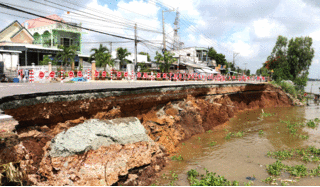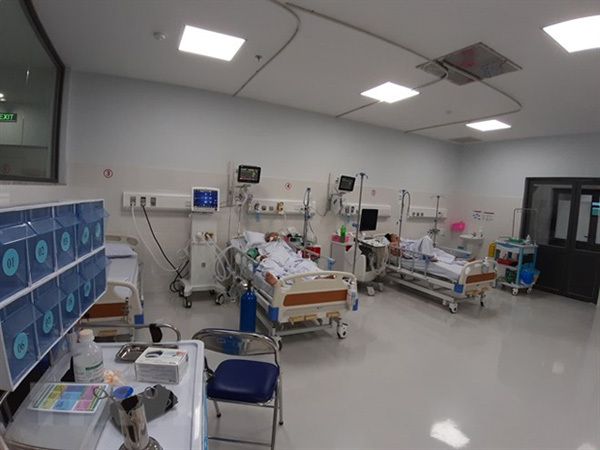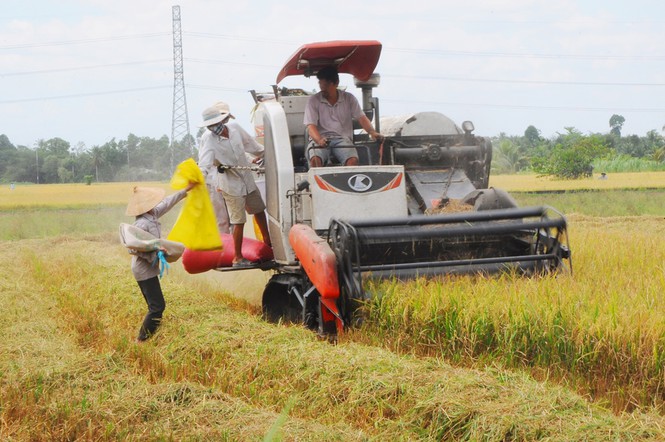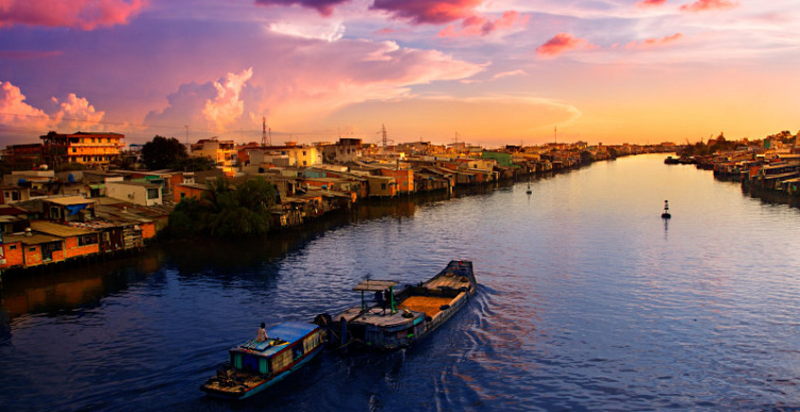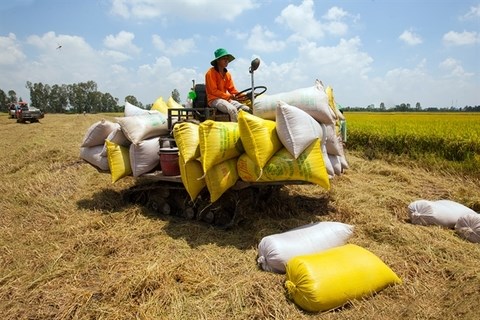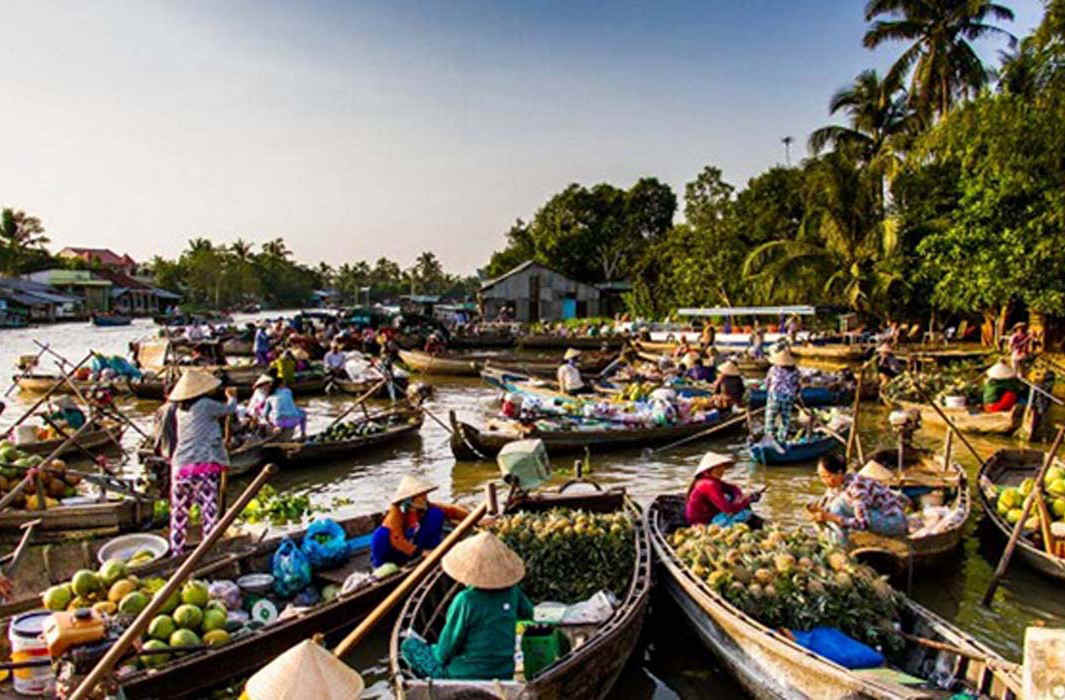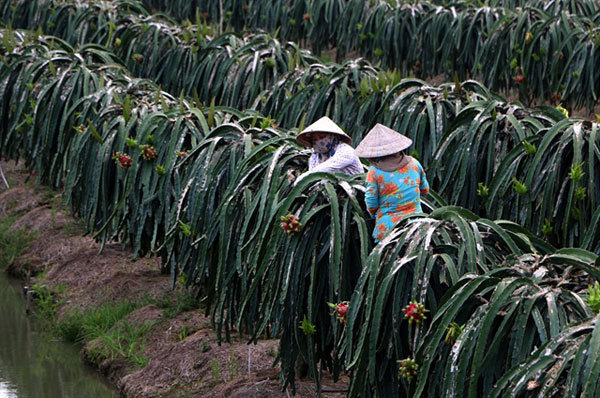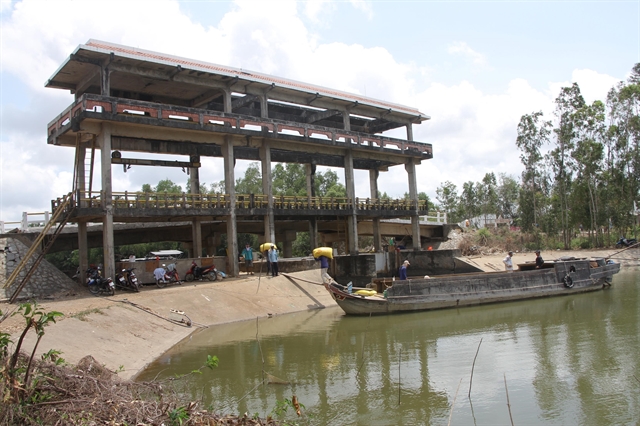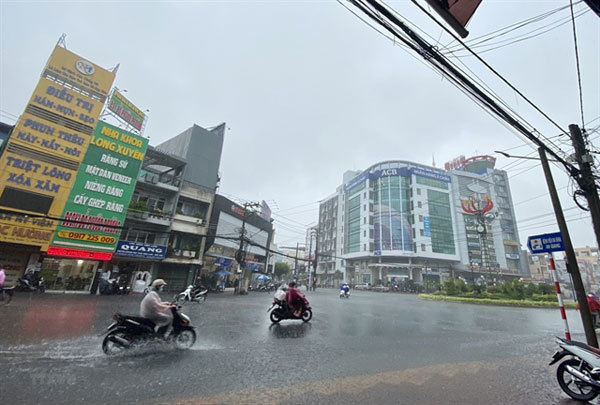- © Copyright of Vietnamnet Global.
- Tel: 024 3772 7988 Fax: (024) 37722734
- Email: evnn@vietnamnet.vn
Mekong Delta
Update news Mekong Delta
Mekong Delta copes with depression, landslide in advance of rainy season
 Depression has already occurred in many places in the coastal provinces of Ca Mau and Kien Giang in the Mekong Delta during the severe drought season this year,
Depression has already occurred in many places in the coastal provinces of Ca Mau and Kien Giang in the Mekong Delta during the severe drought season this year,
Mekong Delta province faces severe water shortage
 The Mekong Delta province of Long An, which has been hit by severe drought this year, needs more fresh water, but can only supply about 50 percent of demand from its 35 fresh water treatment plants and stations.
The Mekong Delta province of Long An, which has been hit by severe drought this year, needs more fresh water, but can only supply about 50 percent of demand from its 35 fresh water treatment plants and stations.
Mekong Delta healthcare system growing rapidly, eases pressure on HCM City hospitals
 The healthcare system in the Mekong Delta has been steadily expanding and becoming increasingly sophisticated, and the large number of choices available now is helping reduce overcrowding at HCM City hospitals.
The healthcare system in the Mekong Delta has been steadily expanding and becoming increasingly sophisticated, and the large number of choices available now is helping reduce overcrowding at HCM City hospitals.
Vinh Long to spend VND400bn on agriculture museum
 Vinh Long Province People's Committee announced that they had approved construction of the VND400bn ($17m) Mekong Delta Agriculture Museum on May 15.
Vinh Long Province People's Committee announced that they had approved construction of the VND400bn ($17m) Mekong Delta Agriculture Museum on May 15.
Science-led solutions needed for Lower Mekong region: Experts
 Voices, opinions, and experiences from the local community and experts should be taken seriously for any policy making process.
Voices, opinions, and experiences from the local community and experts should be taken seriously for any policy making process.
How will seafood companies fare this year?
 Analysts believe that Vietnam’s seafood industry will face difficulties until the end of June.
Analysts believe that Vietnam’s seafood industry will face difficulties until the end of June.
Mismanagement causes difficulties for Vietnam's rice exporters
 Hundreds of thousands of tons of rice in enterprises’ storehouses cannot be exported because of inconsistent policies.
Hundreds of thousands of tons of rice in enterprises’ storehouses cannot be exported because of inconsistent policies.
Localities, exporters propose lifting rice export limits
 Officials from provinces and cities in the Mekong Delta – the country’s rice granary - and rice exporters have urged the government to resume rice exports without setting limits, saying many firms face difficulties because of this.
Officials from provinces and cities in the Mekong Delta – the country’s rice granary - and rice exporters have urged the government to resume rice exports without setting limits, saying many firms face difficulties because of this.
VN government cautious about exporting rice despite plentiful supply
 The Vietnamese government has decided to resume rice exports, but the debate continues about whether the country should continue to do so.
The Vietnamese government has decided to resume rice exports, but the debate continues about whether the country should continue to do so.
Mekong Delta in 50-100 years will be radically different
 Scientists predict that in 50-100 years, the Mekong Delta may be one meter below the sea water level because of climate change.
Scientists predict that in 50-100 years, the Mekong Delta may be one meter below the sea water level because of climate change.
Pink shower blossoms bloom in Mekong Delta province
 Pink shower blossoms (O moi in Vietnamese) are dubbed by locals as ‘Southwestern region’s cherry blossoms’. They are mainly seen in Phu Tan, Long Xuyen and Thoai Son districts in the Mekong Delta province of An Giang.
Pink shower blossoms (O moi in Vietnamese) are dubbed by locals as ‘Southwestern region’s cherry blossoms’. They are mainly seen in Phu Tan, Long Xuyen and Thoai Son districts in the Mekong Delta province of An Giang.
Farmers in the Mekong Delta continue switch to high-value crops
 The Mekong Delta province of Hau Giang plans to grow other crops on around 4,000ha of fields which only grow one rice crop a year or are unproductive by 2030.
The Mekong Delta province of Hau Giang plans to grow other crops on around 4,000ha of fields which only grow one rice crop a year or are unproductive by 2030.
Mekong Delta catfish farmers worry about lower prices
 The UN Food and Agriculture Organization (FAO) predicts that the total catfish output in the world will reach 3 million tons in 2020, of which 50 percent is from Vietnam.
The UN Food and Agriculture Organization (FAO) predicts that the total catfish output in the world will reach 3 million tons in 2020, of which 50 percent is from Vietnam.
Rice farmers in Mekong Delta told to follow sowing schedules as saline intrusion, drought continues
 Authorities have instructed farmers in the Mekong Delta to sow the summer – autumn rice crop on established schedules to mitigate the damage of drought, saltwater intrusion and disease.
Authorities have instructed farmers in the Mekong Delta to sow the summer – autumn rice crop on established schedules to mitigate the damage of drought, saltwater intrusion and disease.
Mekong Delta locals respond to drought and saltwater intrusion
 Since drought and saltwater intrusion are becoming severe in the Mekong Delta in the dry season, localities in the region have actively developed plans, scenarios, and implemented solutions to prevent and control drought and saltwater intrusion.
Since drought and saltwater intrusion are becoming severe in the Mekong Delta in the dry season, localities in the region have actively developed plans, scenarios, and implemented solutions to prevent and control drought and saltwater intrusion.
Agriculture Minister calls for strengthening disaster response
 Minister of Agriculture and Rural Development Nguyen Xuan Cuong wants countrywide improvements in developing plans to respond to natural disasters.
Minister of Agriculture and Rural Development Nguyen Xuan Cuong wants countrywide improvements in developing plans to respond to natural disasters.
Soc Trang declares emergency due to saline intrusion
 The Mekong Delta province of Soc Trang has declared a state of emergency after drought and saltwater intrusion hit the region, strongly affecting local residents’ lives and production.
The Mekong Delta province of Soc Trang has declared a state of emergency after drought and saltwater intrusion hit the region, strongly affecting local residents’ lives and production.
VN universities provide scholarships to ease burden on disadvantaged students
 Many universities in HCM City plan to provide scholarships to students whose families’ livelihoods have been affected by the COVID-19 pandemic or who live in the Mekong Delta and are affected by drought and saltwater intrusion.
Many universities in HCM City plan to provide scholarships to students whose families’ livelihoods have been affected by the COVID-19 pandemic or who live in the Mekong Delta and are affected by drought and saltwater intrusion.
Mekong Delta supplied free freshwater
 Thousands of people in the Mekong Delta Region have been given free freshwater to deal with the on-going drought and saline intrusion.
Thousands of people in the Mekong Delta Region have been given free freshwater to deal with the on-going drought and saline intrusion.
Heavy rains bring cheer to Mekong Delta farmers
 There were heavy rains yesterday, April 13, in many provinces and cities in the Mekong (Cuu Long) Delta, bringing much-needed water to hundreds of hectares of fruits, vegetables and paddy parched by drought and a water shortage.
There were heavy rains yesterday, April 13, in many provinces and cities in the Mekong (Cuu Long) Delta, bringing much-needed water to hundreds of hectares of fruits, vegetables and paddy parched by drought and a water shortage.
